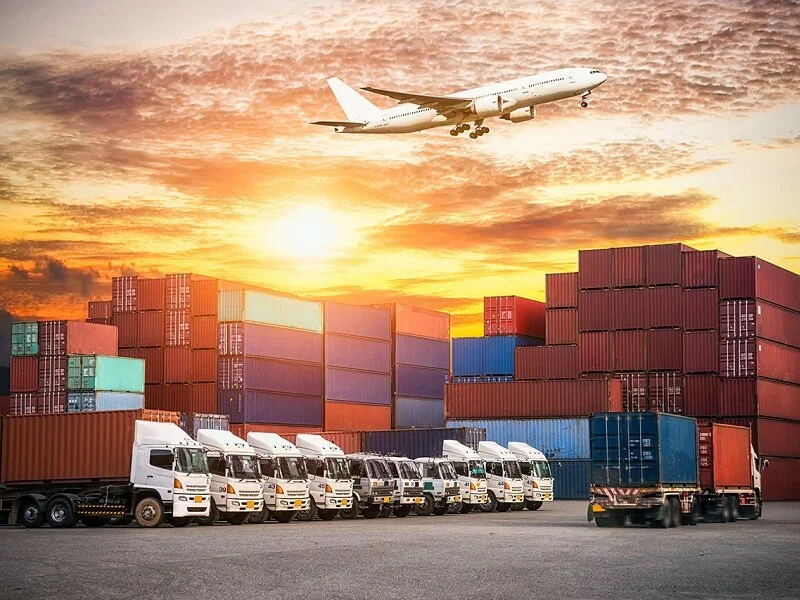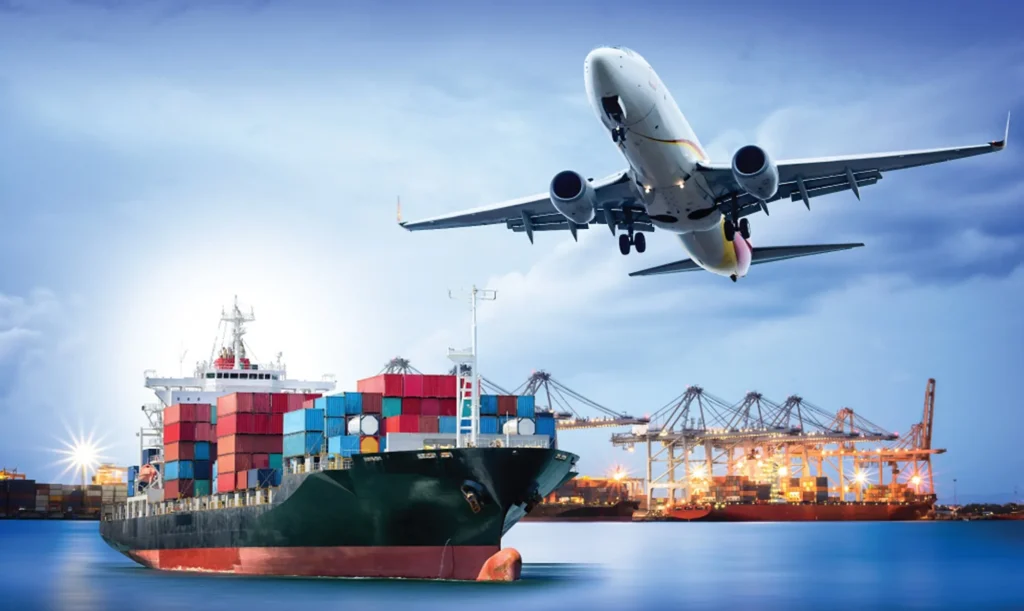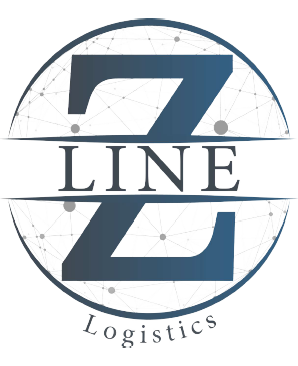Table of Contents
In the labyrinth of global trade, where the movement of goods spans across continents, the role of freight forwarding emerges as a pivotal force in ensuring seamless and efficient logistics.
This blog takes you on a journey through the intricacies of the freight forwarding process, dissecting the stages that orchestrate the movement of goods from inception to delivery.
From inquiry receipt to final documentation, we unravel the core elements of this intricate dance, shedding light on how freight forwarding acts as the linchpin connecting shippers and carriers in the complex tapestry of international commerce.
Join us as we explore the nuances of this indispensable industry, where meticulous planning meets strategic execution to propel the wheels of trade forward.
What Is Freight Forwarding Process?

Freight forwarding is a service-oriented industry that involves the organization and coordination of the transportation of goods from one point to another on behalf of a shipper or a consignee.
Freight forwarders act as intermediaries between shippers (individuals or businesses looking to transport goods) and various transportation services, such as carriers, shipping lines, airlines, and trucking companies.
Key aspects of freight forwarding process include:
Logistics Planning: Freight forwarders plan and organize the logistics of transporting goods, considering factors such as transportation modes, routes, and optimal methods to meet delivery requirements.
Documentation: Freight forwarders handle the necessary documentation for international shipping, including customs paperwork, bills of lading, and certificates of origin, ensuring compliance with regulations.
Booking Cargo Space: Freight forwarders secure cargo space with carriers, airlines, or other transportation providers, negotiating rates and arranging for the transportation of goods.
Cargo Consolidation: Freight forwarders may consolidate multiple smaller shipments into one larger shipment, maximizing efficiency and reducing costs.
Customs Clearance: Freight forwarders assist in navigating customs clearance processes, ensuring that shipments comply with import and export regulations. They may work with customs brokers to facilitate smooth clearance.
Risk Management: Freight forwarders help manage risks associated with transportation, providing cargo insurance options to protect against potential loss or damage during transit.
Tracking and Monitoring: Freight forwarders often provide tracking services, allowing shippers and consignees to monitor the status and location of their shipments in real-time.
Door-to-Door Services: Some freight forwarders offer comprehensive door-to-door services, handling the entire logistics chain from the point of origin to the final destination.
Freight forwarding is crucial for businesses engaged in international trade, as it simplifies the complexities of shipping, ensures compliance with regulations, and facilitates the smooth movement of goods across borders.
Is Freight Forwarding Process Profitable?

The profitability of a freight forwarding process can vary depending on several factors, including the size of the company, its operational efficiency, market conditions, and the types of services offered. Here are some considerations:
Economic Conditions: The overall economic climate and global trade patterns can impact the demand for freight forwarding process. During periods of economic growth and increased international trade, there may be more opportunities for profitability.
Market Competition: The level of competition in the freight forwarding industry can affect profit margins. Companies that differentiate themselves through specialized services, efficient operations, and strong customer relationships may be more successful.
Operational Efficiency: Efficient logistics planning, effective use of technology, and streamlined operations contribute to cost-effectiveness, which can positively impact profitability.
Geographic Focus: Companies that operate in regions with high volumes of international trade may have more opportunities for business. Proximity to major ports, airports, and transportation hubs can also be advantageous.
Service Offerings: Offering a range of services, such as customs clearance, door-to-door delivery, and warehousing, can enhance the value proposition and potentially lead to increased profitability.
Risk Management: Effectively managing risks, including those associated with cargo loss or damage, and offering insurance services can contribute to customer satisfaction and long-term profitability.
Technology Adoption: Embracing technology, such as digital tracking systems, electronic documentation, and data analytics, can enhance operational efficiency and provide a competitive edge.
Regulatory Compliance: Keeping up-to-date with international trade regulations and ensuring compliance with customs requirements is crucial. Non-compliance can result in delays and additional costs that impact profitability.
It’s important for freight forwarding companies to conduct thorough market research, stay adaptable to changing industry trends, and continuously assess and improve their operations to remain profitable.
Additionally, building strong relationships with customers and partners can contribute to long-term success in the freight forwarding industry.
Freight Forwarding Process Step By Step

The freight forwarding process involves multiple steps to ensure the smooth and efficient transportation of goods from the point of origin to the final destination. Here is a step-by-step overview of the typical freight forwarding process:
Receipt of Inquiry:
The process begins when a shipper or a consignee contacts a freight forwarder with details about the shipment, including the type of goods, volume, weight, and destination.
Quotation and Booking:
The freight forwarder provides a quotation based on the information provided. Once the terms are agreed upon, the shipper confirms the booking with the freight forwarder.
Documentation:
The freight forwarder assists in preparing the necessary documentation, including the commercial invoice, packing list, and any other required paperwork for customs clearance.
Transportation Planning:
The freight forwarder plans the transportation, considering the most suitable modes (air, sea, road, or rail), routes, and carriers based on the nature of the goods, cost, and delivery requirements.
Cargo Pickup:
The freight forwarder arranges for the pickup of the goods from the shipper’s location, either by utilizing its own transport or subcontracting to a carrier.
Cargo Consolidation:
For less-than-container-load (LCL) shipments, the freight forwarder may consolidate multiple smaller shipments into one larger shipment to optimize costs.
Customs Clearance:
The freight forwarder handles customs clearance processes, ensuring that all required customs documentation is accurate and submitted in a timely manner to facilitate smooth clearance.
Booking Cargo Space:
The freight forwarder books cargo space with the chosen carriers (airlines, shipping lines, or other transportation providers) and negotiates rates for the transportation of goods.
Cargo Loading:
The goods are loaded onto the chosen mode of transportation, whether it’s an airplane, ship, truck, or train, based on the planned route and carrier.
Transportation:
The freight forwarder monitors the transportation process, providing tracking information to the shipper and consignee to keep them informed about the status and location of the shipment.
Unloading and Delivery:
Upon arrival at the destination, the goods are unloaded and delivered to the consignee’s location. The freight forwarder manages the last-mile delivery, if applicable.
Final Documentation and Billing:
The freight forwarder completes the final documentation, including the proof of delivery. They then issue the invoice to the shipper, covering the transportation and other services provided.
Throughout the entire freight forwarding process, effective communication, attention to detail, and compliance with international trade regulations are crucial for a successful and efficient shipment.
FAQs
What are the stages of the freight forwarding process?
The stages of the freight forwarding process typically include inquiry receipt, quotation and booking, documentation preparation, transportation planning, cargo pickup, cargo consolidation (if applicable), customs clearance, cargo space booking, cargo loading, transportation, unloading and delivery, and final documentation and billing.
What is freight forwarding and how does it work?
Freight forwarding is a service-oriented industry that facilitates the transportation of goods from a point of origin to a final destination.
It works by acting as an intermediary between shippers and various transportation services, coordinating logistics, handling documentation, and ensuring the smooth movement of goods through different modes of transportation.
How does the forwarding process work?
The freight forwarding process involves several key steps. After receiving an inquiry, the freight forwarder provides a quotation, and upon agreement, the booking is confirmed.
The forwarder then assists with documentation, plans transportation, picks up the cargo, handles consolidation if needed, manages customs clearance, books cargo space, loads the cargo, monitors transportation, unloads and delivers the goods, and completes final documentation and billing.
What is the freight forwarding planning process?
The freight forwarding planning process involves strategic decision-making regarding transportation modes, routes, carriers, and other logistics considerations.
It includes assessing the nature of the goods, volume, weight, and delivery requirements.
The planning process aims to optimize efficiency, minimize costs, and ensure the secure and timely transportation of goods from the point of origin to the final destination.
In conclusion, the freight forwarding process serves as the linchpin in the global supply chain, seamlessly orchestrating the movement of goods from origin to destination.
Through meticulous planning, efficient documentation, and strategic coordination of transportation modes, freight forwarders play a vital role in facilitating smooth, reliable, and timely deliveries.
As businesses navigate the complexities of international trade, the expertise of freight forwarders becomes a crucial ally, ensuring that the intricate dance of logistics results in a harmonious and profitable outcome for shippers and consignees alike.




